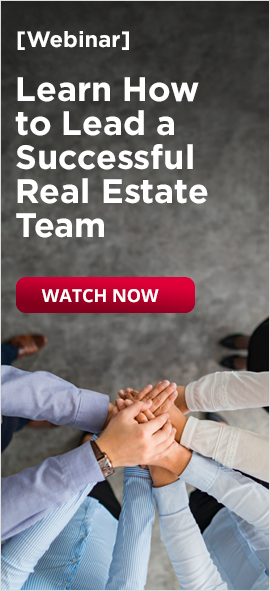The most important part of a real estate open house isn’t necessarily the staging of the home or how good a host you are or how well your refreshments are liked. Those are important, of course, but perhaps the most critical thing is the survey sign-in sheet or app.
There are two ways to handle this: Guests walk in, fill out some basic information, and proceed to look at the property. Or guests walk in, are handed a survey on a clipboard with a pen, and are asked to give their feedback and contact information while they tour the property. In return, you have a new lead … and over a few hours, those leads add up quickly.
Selling the home is the ultimate goal of a real estate open house, but gathering leads and establishing new, potentially fruitful relationships is not a bad secondary goal—more like goal 1A. And what you do with those surveys and sign-ins after the open house will make all the difference.
Give Thanks
Sending a thank you to each guest who took the time to visit your open house and, hopefully, offered input is a no-brainer. Although an email, video or text might suffice, a personal, handwritten, snail-mail note delivers the most impact—it shows that the lead is more than just a name in a sign-in book or on an app, but a real person you respect and value.
Don’t stop at the note; also call the prospect to again offer thanks. Besides expressing your gratitude, you now are talking live with the lead and can ask questions and determine what the buyer thought of the property and how seriously they are in the market for a new home. Even if the prospect says, “Thanks for calling; I’m not in the market at this time, goodbye,” you’ve established a connection they won’t forget if they consider your services in the future.
Tout the Property
If you discover via your thank you and follow-up conversations that the lead liked the property, or at least was mildly intrigued, seize the opportunity to provide more details and features about the listing or the neighborhood. Some aspects of a home aren’t apparent during an open house, so deliver additional information about the community, the school district, how new the appliances are, recent upgrades, and average utility costs. If the house is empty, send virtual tours or before-and-after staging photos to give the lead a better idea what it looks like with furniture. Tell the story of the home (e.g., “The current owners are empty nesters who raised three children in this house over the past 25 years.”). Work with the buyer’s agent to set up another showing. And of course, be ready to answer any questions the lead may have, no matter how obscure the question is or how much research is necessary to find the answer.
Send Other Listings
Your listing may not be what the lead is looking for, and that’s OK—not every home will suit every buyer. However, the opportunity to show your experience and commitment to clients can still shine through. Your other listings might be a better fit; send information on those properties and offer to set up showings. Also, if prospects aren’t working with a buyer’s agent yet, build trust so that they consider you to be their guide on the path to a new home. Send listings that might not necessarily be yours but match the lead’s goals, price range, preferred communities, and so on. Offer some research on how much homes are going for in certain neighborhoods, and suggest alternatives if a prospect’s “dream home” is out of their range. Going the extra mile with open house leads might not get your listing sold, but it can grow your business.
Maximize the Lead
Agents know that real estate open houses don’t always lead to a sale or even deeper interest, but the leads gathered from the event can still be very valuable. Not every attendee is ready to buy, but aside from looky-loos, most open house visitors are at least thinking that a new home might be in their future. Many attendees are often the neighbors who are interested in learning what real estate values are in their neighborhood and how their home stacks up in comparison to their neighbors - and they are often interested in selling their home. Establishing relationships with these leads, no matter how close to or far away from buying or selling they are, expands an agent’s client base and reach—but only if the relationships are nurtured.
Checking in periodically with prospects keeps them on your radar (and you on theirs) without seeming pushy. Encourage them to subscribe to your social media channels, and put them on your mailing lists. Send them your new listings. Invite them to other open houses and special events you’re hosting. This may sound cliché, but successful real estate relationships are a marathon, not a sprint. All the little things you do after the open house help you cross the finish line with a new client later.



